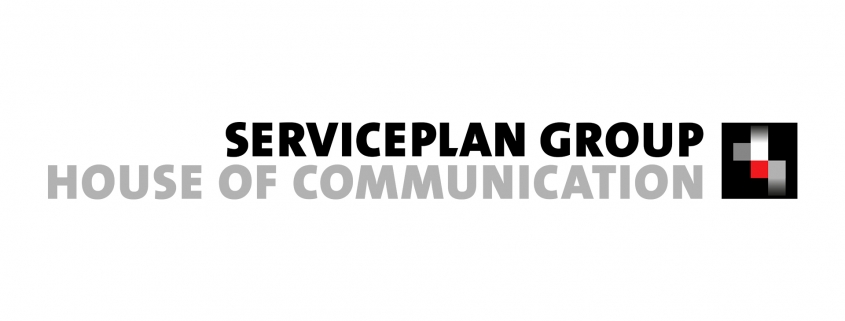- Developments of various retail formats - 20. December 2017
- Retail has to act – now - 13. November 2017
- Brands, power and myths - 29. August 2017
- Three new routes to brand management - 13. April 2017
Donald Trump is a complete failure. Above all when it comes to marketing. He is a textbook example of what not to do. He should have known better.
Donald Trump – oh dear, not him again. On this side of the Atlantic, we don’t want to see, read or hear any more about the presidential impersonator over on the other side. Not until we receive the news that he is finally gone. At least he appears to be working hard to make that happen. And despite all the signs of fatigue, this actually makes him interesting. Especially for those involved in marketing. After all, when the Americans elected Trump to head of state, for the first time it was not a politician taking office but rather someone who consistently denies being exactly that. In fact, Trump was a brand up until then, just like Coca-Cola, Oreo or Ariel. Something people see on TV so often that they’re bound to try it out at some point. However, things have been going wrong for the Donald Trump brand ever since.
There are of course a number of political reasons behind this, but these are only one part of the story. Trump regularly crosses red lines – the one surrounding the events in Charlottesville was clearly one too far. He made it clear that he is not just suspected of xenophobia, racism and anti-Semitism, but does in fact sympathise with far-right radicalism and neo-Nazis. If Trump the businessman were less narcissistic and if he didn’t surround himself with so many bootlickers, he would probably have a word with his head of marketing in light of the resulting situation. It’s like McDonald’s only wanting to sell the Big Mac and nothing else. Trump insists on serving the old-established customer base, which all polls indicate has since become a substantial minority. He never tries to appeal to a new clientele. Perhaps he’s not even interested in being re-elected?
In that case, a personality brand such as his can be an extremely positive thing, and advertisers would be happy to see more of it. We need only take a look – in a much more harmless context, of course – at coffee roaster Albert Darboven, who advertised his beans on television. Or Claus Hipp, the friendly baby food patriarch. These are people who can build trust. Faces that represent a product as well as the company that produces it. They convey truthfulness. However, the Trump brand, which should represent the president for all Americans, has become a fake.
He has meticulously built up this image of a tough property mogul who has become a billionaire through unconventional methods and good old elbow grease (something we can’t know for sure, by the way, since he stubbornly refuses to reveal his tax returns). The old “anybody can make it” story. In marketing, there exists a classic triad for brand trust: Raise awareness, generate sympathy, and arouse the willingness to buy. Trump’s election was simply a case of job done. The electorate bought into him. If you look at it from a business point of view, he succeeded in establishing his brand in a completely new market. The superman of the business world was now going to show politics the ropes. But then, egomaniac that he is, he began unnecessarily cutting those ropes.
Trump’s success as a campaigner is also down to the economy of attention prevalent in today’s world. Twitter, the preferred communication medium of the US president, gained an unexpectedly high number of new users in the first quarter of this year – nine million. 8.9 million of those are attributed to Trump. The respected New York Times and Wall Street Journal have also recorded a noticeable growth in popularity since he entered office. Clearly, people are looking for more than just news, and want signposts to help them navigate the jungle of information brought about by the Internet. After all, the web is not just a convenient source of daily information, but also a hotbed of misinformation due to its over-abundance. Too much, too quick, too often, and too unreliable – we are inundated with news and click bait, whether from politics or economics, with everyone trying to vie for our attention. We look for guidance and direction in this jungle. In other words, we look for truthfulness and trust. That’s what brands stand for. Once I have found “my” brand, my world is in order and I can confidently leave everything else aside.
One might then interpret a brand as being a good thing. It isn’t. It is only good for sales. In politics, for example, the brand of populism has massively increased in value in recent years, as analysed by Giovanni di Lorenzo, editor-in-chief of “Zeit”. He spoke about this during his keynote speech at “Best Brands” – an event where the best brands in Germany are awarded prizes. Populism means simple orientation with clear guiding principles and, above all, with enemy stereotypes. Which brings us back to Donald Trump. His populism has not only damaged his own brand, but this movement as a whole. The populists have been unsuccessful in their attempts to gain power in the Netherlands and France, and the story will be the same in Germany. It’s impossible to win in Trump’s wake.
The guy has a knack for marketing, as he demonstrated during his campaign. But politics is not his thing. That’s why he continues to act as though he’s still on the campaign trail. As much as we like to rant about politicians, The Donald makes it clear that even this job is one for professionals. It would be interesting to find out the course that his company’s business takes in light of the political debacle. According to the US press, after Charlottesville, charitable associations no longer wanted to book his golf club in Florida where they would have held events for a lot of money. And apparently he has been unable to sell a holiday villa in the Caribbean, even after lowering the price. Perhaps this is down to the “dictator chic” style of the interior design. Unfortunately we don’t know any more details.
What cannot be ruled out, however, is that the Trump brand has become a financial burden on the Trump company. After all, the most important thing for a brand these days is the product (something often underestimated or overlooked by those responsible). Whoever makes a promise about a product needs to keep it. If the detergent doesn’t actually make clothes whiter, then customer confidence – the essential capital of the brand – quickly disappears (by the way, have you noticed that this type of advertising is barely used anymore? There is a reason for this!). If the president just keeps producing sound bites and failing on his promises instead of getting down to politics (which we are actually used to with politicians, but didn’t expect from this anti-politician), then something is wrong with the product. Quality has never been more valuable.
This article was also published at Horizont.
This page is available in DE





